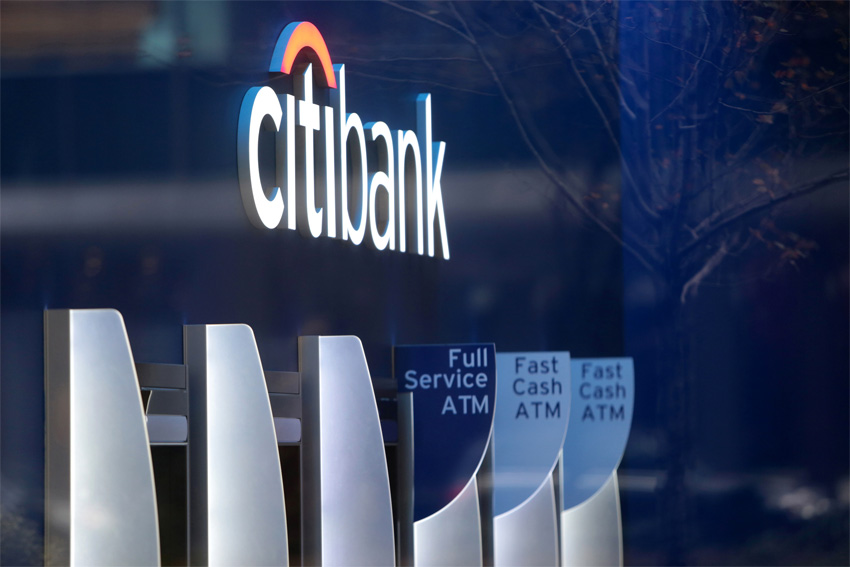The simplest way to explain who owns Citigroup (C +0.49%) is this: The bank is owned by shareholders. The details of those shareholders and the company's history are less simple to explain, however.
Below you'll learn highlights of Citigroup's history that shaped its evolution from a small state bank to a globally diversified financial services holding company. Also included are lists of Citi's largest owners and its board of directors, plus information on three ways to invest in the company today.

NYSE: C
Key Data Points
Who is the owner of Citigroup?
Citigroup trades on the New York Stock Exchange (NYSE) under the ticker C. As a public company, Citigroup has no single owner. Rather, ownership is split among many shareholders, including institutional investors, insiders, and retail investors. Citigroup's five largest institutional and insider investors are listed in the next section.
Institutional Investor

Individual shareholders
Citigroup's major individual shareholders are primarily insiders. The top five insider shareholders are Jane Fraser, Andrew Morton, David Livingstone, Andrew Sieg, and Mike Whitaker. The share counts noted are current as of mid-February 2024.
- Jane Fraser is Citigroup's CEO. She has served the bank for more than 19 years in various leadership roles. She was previously a partner with McKinsey & Company. Fraser has 544,156 Citigroup shares, valued at about $34 million. Her ownership stake is 0.028%.
- Andrew Morton serves as head of markets for Citigroup. He joined the company as an employee in 2008 after a 15-year tenure at Lehman Brothers. Morton's portfolio is worth roughly $26 million. His 425,004 shares account for 0.022% of the company's market cap.
- David Livingstone has been chief client officer for Citigroup since September 2023. Formerly CEO of the bank's Europe, Middle East, and Africa business, Livingstone holds 403,146 Citigroup shares worth about $25 million. His position is a 0.021% ownership stake.
- Andrew Sieg is head of wealth at Citigroup. He has held senior leadership roles in wealth management since 2005. Sieg's Citigroup investment has a market value of about $18 million, and he owns 299,293 shares, 0.016% of the bank's outstanding stock.
- Mike Whitaker is Citigroup's head of operations and technology. He's been in the role since 2018, after a four-decade career of increasing responsibility in technology and financial services. Whitaker holds 285,978 shares of Citigroup. His position, valued at approximately $18 million, represents a 0.015% ownership stake.
How to invest in Citigroup
You can invest in Citigroup by purchasing shares directly through your investment account. If you plan to invest in whole shares, you'd place a buy order specifying the number of shares you want.
Some brokers support fractional purchases as well. Fractional orders typically note the dollar amount you want to invest rather than a share count. You might request to buy, say, $30 worth of Citigroup. At a $61.50 share price, that order would deliver 0.48 shares, assuming you don't pay fees on the trade.
You can also invest in Citigroup indirectly via a mutual fund or ETF. If you're investing in a 401(k), a fund is likely your only option for Citigroup exposure. Citigroup is a member of the S&P 500, so any S&P 500 fund will include Citi stock.
You should also find Citi stock in funds that replicate the S&P Global 100 and the S&P Composite 1500. The S&P Global 100 includes 100 blue chip stocks with multinational operations. The S&P Composite 1500 combines the S&P's large-cap, mid-cap, and small-cap indexes for a basket of 1,500 stocks that cover 90% of U.S. market capitalization.
Citigroup is also a likely constituent in funds that specialize in bank stocks. If you're interested in targeted banking exposure, see our complete guide to investing in bank stocks.
Some brokers support fractional purchases as well. Fractional orders typically note the dollar amount you want to invest rather than a share count. You might request to buy, say, $30 worth of Citigroup. At a $61.50 share price, that order would deliver 0.48 shares, assuming you don't pay fees on the trade.
You can also invest in Citigroup indirectly via a mutual fund or ETF. If you're investing in a 401(k), a fund is likely your only option for Citigroup exposure. Citigroup is a member of the S&P 500, so any S&P 500 fund will include Citi stock.
You should also find Citi stock in funds that replicate the S&P Global 100 and the S&P Composite 1500. The S&P Global 100 includes 100 blue chip stocks with multinational operations. The S&P Composite 1500 combines the S&P's large-cap, mid-cap, and small-cap indexes for a basket of 1,500 stocks that cover 90% of U.S. market capitalization.
Citigroup is also a likely constituent in funds that specialize in bank stocks. If you're interested in targeted banking exposure, see our complete guide to investing in bank stocks.






























